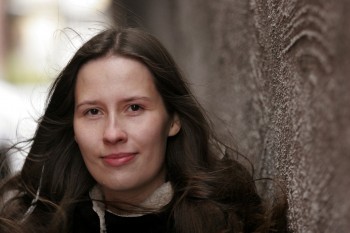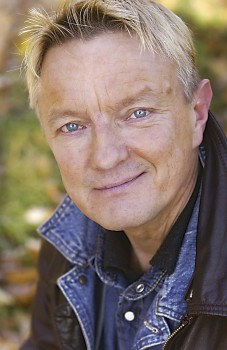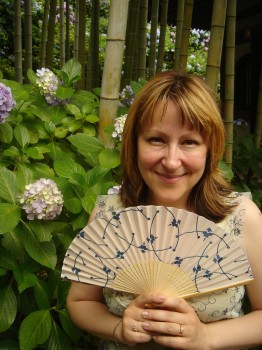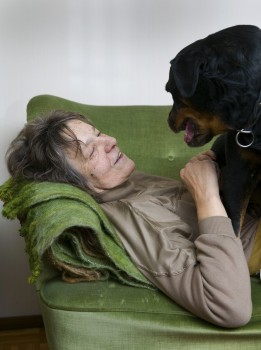Authors
That’s life
4 March 2011 | Authors, Essays, Non-fiction, On writing and not writing

In this series Finnish authors ponder their profession. If this is writing, there’s no method in its madness: Markku Pääskynen finds he wants to write as life allows, not bend his life to suit his writing
I was born in 1973. I’ve written six novels, and I’m working on my seventh. I’ve written short stories and essays, and translated. That may sound productive, but it isn’t: I can’t stand to sit in front of the computer for more than a couple of hours a day.
My work is elsewhere – in everyday chores: going to the store, taking out the trash, fixing meals, washing dishes, cleaning, playing with the kids. Normal days are full of work and messing around. And my literary work has to fit in with that. I don’t have it in me to write methodically. I do know how to keep deadlines and meet contracts, but the methodicalness is lacking. More…
In memoriam Bo Carpelan 1926–2011
24 February 2011 | Authors, In the news
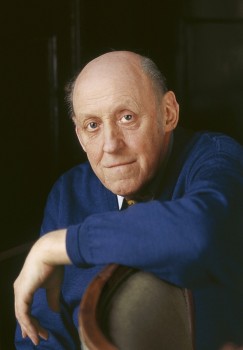
Bo Carpelan. Photo: Irmeli Jung
I write one winter’s day,
write off the day and the night, the planets,
go into my house from a harsh sun
and extend those shadows that are swordlike aimed.
It is a day of drifting snow
and with a voice from that which is I
or was.
(From The Cool Day. English translation by David McDuff, published in Homecoming, Carcanet, 1993)
Bo Carpelan, one of the great names of Finnish literature, died in his home city of Helsinki on 11 February. Carpelan’s first collection of poetry appeared in 1946, his last in 2010.
In his poems and prose he frequently described his childhood in apartment buildings filled with the smell of cooked herring, the noise of quarrels and the sound of the news on the radio. Prosaic life is turned into poetry, images and music, the apartment house is built from the rooms of a dream.
Bo Carpelan loved music. His novel Axel (English translation by David McDuff, 1989), is about his paternal grandfather’s brother, who was a friend of Jean Sibelius and the composer’s first critic. Axel was an unsuccessful musician who chose to live through someone else, and Carpelan relates him to the theme of the dignity of rejected human beings. More…
Horror on the first line
15 October 2010 | Authors, Essays, Non-fiction, On writing and not writing

In this series, Finnish authors ponder their profession. In his radical youth, the poet and author Ilpo Tiihonen thought blind rage was what fuelled poetry. As he later found it’s a lot more complicated, he began to invent ways of loosening literary tension
When I was a little more than 20, when I thought I had completed the manuscript of my first volume of poems, everything was going to hell.
I wanted life to be political, exotic, inspired, but the Finnish way of life, with its instructions and its home loans crushed people into a stiff and monopositional way of being. One of submission. I protested. We made an underground magazine whose cover showed Nixon peeing on South America. We founded a propaganda theatre which raged against the colonels’ junta in Greece. And there was plenty to vilify about the Finnish bourgeoisie, too. I hated capitalism, TV advertisements and the high prices of bus tickets. And there was no hot water in my rented digs. The main thing was to protest. More…
One-night stand: an interview with publisher Leevi Lehto
17 September 2010 | Interviews
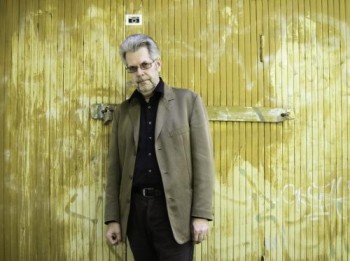
Leevi Lehto. Photo: Lotta Djupsund/Savukeidas
Founded by poet Leevi Lehto, ntamo is seen by many as the black sheep and enfant terrible of the world of Finnish publishing.
From its inception, ntamo (shortened from the word kustantamo, publishing company) has striven to subvert the familiar conservative models of publishing that audiences are used to.
Ntamo publishes books for small circulation, such as poetry and experimental prose. Its catalogue includes works both by celebrated writers, such as Kari Aronpuro, and by a whole host of authors making their literary debuts.
Lehto’s objective has been to publish as many books as possible, using a system of print on demand, and to have as little to do with the books’ content as possible. What’s more, ntamo’s publications are not marketed at all. Readers can find information on new publications by following the publisher’s blog [in Finnish only]. I met up with Lehto a while ago and we discussed ntamo’s current situation, new trends in the publishing world and the future of books and literature in general. More…
Drama queen: on writing, and not writing, plays
14 June 2010 | Articles, Authors
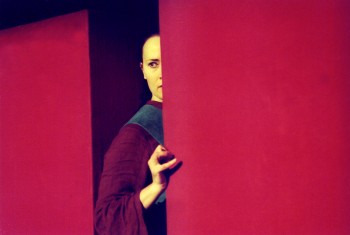
The queen who chose not to rule: Christina of Sweden in the play Queen C (first produced at the Finnish National Theatre in 2003, directed by the author, Laura Ruohonen, with Wanda Dubiel in the role of the Queen). Photo: Leena Klemelä
Extracts from ‘Postscript’, published in Kuningatar K ja muita näytelmiä (‘Queen C and other plays’, Otava, 2004)
It’s hard to read plays. I was bitterly disappointed at the age of eight, when I hid in my grandmother’s attic and opened up Romeo and Juliet, a book that seemed to promise lust and appalling acts. But it wasn’t even a real book; it was just talking from beginning to end! Where was the plot, the action, the much talked-about love story?
It’s also hard to write plays. Novels and works of poetry are closed miniature worlds that invite the reader in. A play always serves two masters. It has to be open and porous to allow the actor and the performance to penetrate into it. More…
Outside the human realm
28 May 2010 | Authors, Reviews
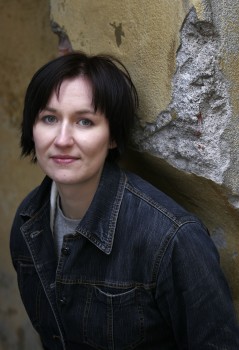
Tiina Raevaara. Photo: Heini Lehväslaiho
Themes enriched by the natural sciences set in a kind of naturalised literary fantasy make Tiina Raevaara an interesting young prose-writer. She is a doctor of genetics and a science writer whose collection of fourteen short stories, En tunne sinua vierelläni (‘I don’t feel you beside me’, Teos, 2010), is her second literary work.
Fantasy and a sombre dystopia combine in her debut novel, Eräänä päivänä tyhjä taivas (‘One day an empty sky’, 2008), which took its readers to the centre of ecological catastrophes and struggles for power taking the form of family relationships. The novel was seen as a morality tale examining the issue of human responsibility, and Leena Krohn, Johanna Sinisalo, Maarit Verronen and Jyrki Vainonen were identified as its literary godparents.
What unites these Finnish writers working at the borders of fact, fiction and fantasy? They are distinguished from realist prose by the way they pose a certain type of ethical question: the complex relationship between humankind and what is called nature, and the inexplicable fuzzy area between the two, which the hard sciences are unable to grasp. In these writers’ work, fantasy often layers into philosophical allegories which examine the limits of what can be experienced as human. More…
Dreaming a dream: the poetry of Helvi Juvonen
17 May 2010 | Authors, Reviews
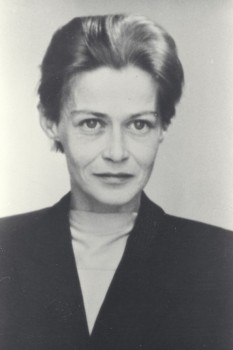
Helvi Juvonen (1950s). Photo: WSOY
The work of Helvi Juvonen is beguilingly strange; intense, eccentric, askew, it sees the world afresh. It charms by means of fairy-tale motifs and apparent nonsense; but it also offers piercing insights into suffering, loneliness, and alienation.
It combines the haunting, elliptical quality of the verse of Emily Dickinson, the nineteenth-century American poet-recluse, with the sharp, fresh imagery of the Finnish 1950s modernist Eeva-Liisa Manner. Its religiosity is complex and unsettling, its humour sly and bizarre. Hard to categorise, Juvonen is both traditional and modern: a sceptical believer, a quiet transgressor.
Juvonen (1919–1959) was known as ‘Nalle’ (teddy) as a child, and her fondness for and identification with animals emerges often her poems:
The mole sleeps,
spade-paw,
velvet-fur,
dreaming a dream, darkly soft
The poetry is also characterised by a fairy-tale logic and a kind of childlike anarchy; a goblin shares her joy with a bumblebee, a tapir talks to a stone. There is a mischievous, surreal streak in the work. The world is anthropomorphised, as in a fairy tale; the poet addresses a singing kettle.
Juvonen in fact wrote fairy tales, not published in her lifetime, like that of Little Bear dreaming as she hibernates. ‘Bon bons, bon bons,’ she says repeatedly, this stream of sound constituting joyous nonsense, an acknowledgement of the miraculous freshness of the world. More…
Ruminations
16 April 2010 | Authors, Reviews
One of the most exciting features of Finnish poetry since 2000 has been the wealth and breadth of poetry by young women. Compared to literature written by women in earlier decades, contemporary poetry appears to have freed itself from one-track feminism and knotted brow earnestness to become a literature with a richer approach to womanhood, its forms and history.
The first collection by Vilja-Tuulia Huotarinen (born 1977), Sakset kädessä ei saa juosta (‘You mustn’t run with scissors in your hand’, 2004) was a glimpse into the culturally restricted but nevertheless autonomous world of young girls. Mother’s instructions and Father’s advice will be broken down as one grows up; in spite of the genderised system, it is still possible for a young woman to make her own choices. More…
Slowly does it – or not?
9 April 2010 | Authors, Essays, Non-fiction, On writing and not writing

In this series, Finnish authors ponder their profession. One day Kristina Carlson – a self-confessed slow writer – found her imagination so strongly inhabited by one of her own, as yet non-existent, characters that she was finally impelled to complete her novel
‘The answer grows like the spring light. / In my desk drawer there’s something, important. / I slowly remember it.’ I wrote these words in my first published work, my collection of poetry Hämärän valo (‘Light of dusk’) from 1986. I was born in 1949, so I was something of a late bloomer.
Still I had been writing ever since I was a child. After a ten-year break, I published my first children’s book under a pseudonym. In the space of three years after that, a total of twelve books appeared in the Anni series. In 1999 I published my first novel, Maan ääreen (‘To the end of the earth’). Another ten years passed; my second novel, Herra Darwinin puutarhuri (‘Mr Darwin’s gardener’), was published last autumn.
I’ve often been asked – more often than I have asked myself – why I publish so rarely. I don’t find writing difficult, but it is difficult to write well. For me, writing well involves clarity, precision, brightness, finding just the right mood and rhythm. If it were simply a case of the classic ‘murder your darlings’ problem, it could easily be resolved through a process of sufficiently pruning the text, but such pruning would leave us with nothing but a bare tree.
Writing is such a synthetic process that it is hard to describe, as it is inherently bound up with one’s own language and mind. More…
Challenged by colour
1 April 2010 | Authors, Interviews
Interview with Hannu Väisänen, author of the novel Kuperat ja koverat (‘Convex and concave’, 2010)
For the painter and writer Hannu Väisänen, colour speaks volumes.
In the novel Toiset kengät (‘The other shoes’, 2007, Otava) awarded the Finlandia Prize for Fiction), teenage wannabe artist Antero manages to escape his grey northern hometown of Oulu; he is heading for the eastern Finnish town of Savonlinna, where he will go to art college. Triumphantly Antero dyes his blond hair black in the bus station toilet.
‘Perhaps it was all a question of the right colours and the right timing of colours,’ Antero thinks. In Kuperat ja koverat (‘Convex and concave’, 2010), he leaves for the capital, determined to get into the academy of art. His hair is still black. More…
Between three cultures
5 February 2010 | Authors, Reviews
A new collection of short stories by the Leningrad-born author Zinaida Lindén explores the ambiguities of life between three cultures: her native Russia, her adopted Finland, and Japan, where she has also lived. In this introduction to Lindén’s short story Shards from the empire, Janna Kantola appreciates Lindén’s capricious, recalcitrant prose, and the positive, generous spirit that lies behind her work
Seen from a distance, Finns and Russians seem very like one another.
Zinaida Lindén has written her books from a cultural no-man’s-land in which she may have been forced to ponder the central questions of national identity. After studying Swedish in her native Russia, Lindén (born 1963) settled in Finland with her Finland-Swedish husband, and has written all of her works in Swedish. A recurring theme is that of encounters with the foreign, the other. More…
Nature girl: on the poetry of Sirkka Turkka
21 January 2010 | Authors, Reviews
Sirkka Turkka writes precise, lucid sentences, as if composing a treatise. But her poems often relate utterly loopy things; the work is playful, frisky. It is not based on explication or hidden themes. When it refers to abstract matters, it always couples them with concrete reality, with natural or everyday occurrences. ‘Trees have the snowy faces of ancestors, and on the road where dogs walk in their wind-blasted trousers, silence eats itself like silk.’
The poems contain numerous allusions to literature and culture, including popular culture. The tone can be parodic in these instances, but not critical; rather, a new point of departure is established, as when Turkka writes about Hamlet in her 1970s collection, Yö aukeaa kuin vilja (‘The night opens like corn’). ‘On long, silent winter days, when his father immersed himself in additional studies or demonstrations of learning, Hamlet would shut himself up in his room in order to rewrite history. He colonised countries and swapped their locations. At one stage he even thought of making the sun rise in the West and America encounter Columbus, but he restrained himself.’ More…
Animal instincts
23 December 2009 | Authors, Interviews
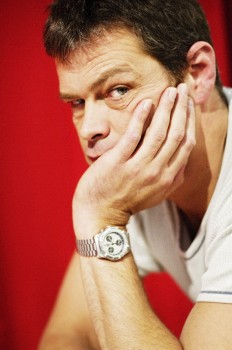
Roman Schatz. - Photo: Veikko Somerpuro
Animals exist to make people rich. This wretched and wrong capitalist obsession is gleefully debunked in Roman Schatz’s first children’s book, with illustrator Pertti Jarla’s zany depictions of an animal revolution. Maria Antas interviews the author.
Zoo – eläimellinen tarina (‘The Zoo, a bestial story’, WSOY, 2009) is a children’s book that also appeals to the kind of adults who might love the exploits of John Cleese, Jamie Lee Curtis, and Kevin Kline in the film Fierce Creatures – this book, like the film, is about attempts to make animals seem more dangerous and attractive to an ever more jaded audience accustomed to the pace of action movies.
Christmas is coming, and a dynamic new Zoo director wants to make an unprofitable zoo into a money spinner. The zoo’s inhabitants, however, refuse to be slaves to the market economy: led by an old Sumatran tiger called Gandhi, the militant mandrill Che, dreaming of revolution, and a bat named Mother Teresa who sees the world upside-down, the animals rise up in a wild, but ultimately non-violent, insurrection. Schatz’s story evokes 20th-century utopians, and the animals’ expressions, as visualised by illustrator Pertti Jarla, awaken the reader’s conscience and our nearly forgotten ability to laugh at the way the world works. More…
Gatecrashing the universe: the poems of Ilpo Tiihonen
4 December 2009 | Authors, Reviews
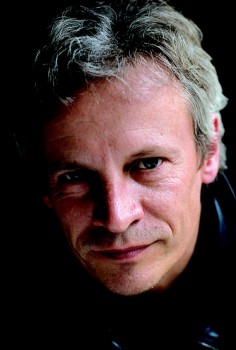
Ilpo Tiihonen – Photo: Irmeli Jung
Ilpo Tiihonen defies definition: he is, at one and the same time, a cosmopolitan poet who draws his influences from Latin America and the early Soviet avant garde, and a local poet for the whole of Finland, a fabulist who plays with language and a rough-hewn romantic of everyday life.
In Tiihonen’s selected poems, Lyhyt oodi kaikelle (‘A short ode to everything’, 2000), readers are invited to admire the prospekts of Moscow and Paris’s Montparnasse.
Most fondly pictured, however, are spring work-days wherever Tiihonen (born 1950) is living – in recent years, the working-class Helsinki suburb of Kallio, which has on the one hand scrubbed up to become a favourite of students and the more bohemian middle-class and on the other gained notoriety for its bread-lines, prostitutes and street winos. More…
Poetic excercises by the sea: Herbert Lomas (re)visited
21 November 2009 | Authors, Interviews
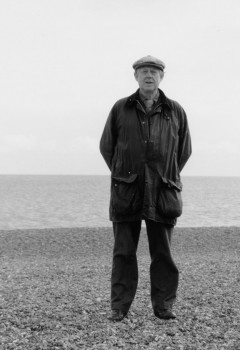
Poet ahoy: Herbert Lomas in Aldeburgh. Photo: Soila Lehtonen
The prize-winning British poet Herbert Lomas has been translating Finnish poetry – much of it for Books from Finland – for more than thirty years. Soila Lehtonen, our Editor-in-Chief and his long-time collaborator, interviews him on the occasion of the publication of his collected poems, A Casual Knack of Living
The shoreline and the seaside promenade stretch out along the windy East Suffolk coast in Aldeburgh, where Herbert Lomas lives in a pink house called North Gable.
In summer thousands of tourists frequent the picturesque village, particularly during the music festival in June, founded in 1948 by the local composer Benjamin Britten. A poetry festival, too, takes place every autumn, this year for the 21st time.
Herbert – Bertie to those, like us at Books from Finland, who know him well – has just published a handsome tome of poetry, A Casual Knack of Living, containing poems from nine earlier collections plus a selection of previously unpublished poems, entitled Nightlights. The home of his publisher, Arc Publications, is in the village where he was born, 85 years ago, Todmorden in the Pennines. More…
-
Currently browsing
Interviews with Finnish authors and introductions to their work
-
RSS feed
Subscribe to RSS feed for Authors
-
List of authors and contributors
- Abu-Hanna, Umayya
- Ågren, Gösta
- Aho, Hannu
- Aho, Juhani
- Aho, Claire & Westö, Kjell
- Ahola, Suvi
- Ahti, Risto
- Ahtola-Moorhouse, Leena
- Ahvenjärvi, Juhani
- Ala-Harja, Riikka
- Alftan, Maija
- Alhoniemi, Pirkko
- Anderson, John
- Andersson, Claes
- Andersson, Jan-Erik
- Andtbacka, Ralf
- Anhava, Tuomas
- Antas, Maria
- Apunen, Matti
- Aro, Tuuve
- Aronpuro, Kari
- Autio, Milla
- Bargum, Johan
- Bargum, Marianne
- Barrett, David
- Binham, Philip
- Björling, Gunnar
- Blau DuPlessis, Rachel
- Bolgár, Mirja
- Boucht, Birgitta
- Bremer, Caj
- Bremer, Stefan
- Brotherus, Elina & Ala-Harja, Riikka
- Byggmästar, Eva-Stina
- Canth, Minna
- Carlson, Kristina
- Carpelan, Bo
- Chan, Stephen
- Chorell, Walentin
- Diktonius, Elmer
- Ekman, Michel
- Ekroos, Anna-Leena
- Enckell, Agneta
- Enckell, Martin
- Enqvist, Kari
- Envall, Markku
- Eskola, Kanerva
- Fagerholm, Monika
- Flint, Austin
- Forsblom, Harry
- Forsblom, Sabine
- Forsström, Tua
- Gothóni, Maris
- Granö, Veli
- Gripenberg, Catharina
- Gröndahl, Satu
- Grünthal, Satu
- Haanpää, Pentti
- Haapala, Vesa
- Haasjoki, Pauliina
- Haatanen, Kalle
- Haavikko, Paavo
- Hämäläinen, Helvi
- Hämäläinen, Timo
- Hännikäinen, Timo
- Hänninen, Anne
- Hannula, Risto
- Harju, Timo
- Härkönen, Leena
- Harmaja, Saima
- Hassinen, Pirjo
- Havukainen, Aino & Toivonen, Sami
- Hawkins, Hildi
- Heikkilä-Halttunen, Päivi
- Heikkonen, Olli
- Heinimäki, Jaakko
- Hejkalová, Markéta
- Hellaakoski, Aaro
- Hertzberg, Fredrik
- Hiidenheimo, Silja
- Hiltunen, Eija Irene
- Hökkä, Tuula
- Holappa, Pentti
- Hollo, Anselm
- Holmström, Johanna
- Honkala, Juha
- Hotakainen, Kari
- Huldén, Lars
- Huotari, Markku
- Huotarinen, Vilja-Tuulia
- Huovi, Hannele
- Huovinen, Veikko
- Hurme, Juha
- Hyry, Antti
- Idström, Annika
- Ingström, Pia
- Inkala, Jouni
- Isomäki, Risto
- Istanmäki, Sisko
- Itkonen, Jukka
- Jalonen, Olli
- Jama, Olavi
- Jansson, Tove
- Järnefelt, Arvid
- Järvelä, Jari
- Järvinen, Outi
- Jeremiah, Emily
- Joenpelto, Eeva
- Joenpolvi, Martti
- Joensuu, Matti Yrjänä
- Jokela, Markus
- Jokinen, Heikki
- Jokisalo, Ulla & Kortelainen, Anna
- Jones, W. Glyn
- Jotuni, Maria
- Juntunen, Tuomas
- Juvonen, Helvi
- Kähkönen, Sirpa
- Kaila, Tiina
- Kaipainen, Anu
- Kanto, Anneli
- Kantokorpi, Mervi
- Kantokorpi, Otso
- Kantola, Janna
- Karlström, Sanna
- Karonen, Vesa
- Katajavuori, Riina
- Katz, Daniel
- Kihlman, Christer
- Kiiskinen, Jyrki
- Kilpi, Eeva
- Kilpi, Volter
- Kinnunen, Aarne
- Kirstinä, Leena
- Kirstinä, Väinö
- Kirves, Jenni
- Kivi, Aleksis
- Knapas, Rainer
- Kokko, Karri
- Kokko, Hanna & Bargum, Katja
- Kontio, Tomi
- Korhonen, Riku
- Korsström, Tuva
- Koskela, Lasse
- Koskelainen, Jukka
- Koskimies, Satu
- Koskinen, Sinikka
- Krohn, Leena
- Kulmala, Teppo
- Kunnas, Kirsi
- Kupiainen, Teemu & Bremer, Stefan
- Kurkijärvi, Gene
- Kuusisto, Stephen
- Kylätasku, Jussi
- Kyrö, Tuomas
- Kytöhonka, Arto
- Laaksonen, Heli
- Lahtela, Markku
- Lahti, Leena
- Laine, Jarkko
- Laitinen, Kai
- Lander, Leena
- Lassila, Pertti
- Laurén, Anna-Lena
- Leche, Johan & Grysselius, Johan
- Lehtola, Erkka
- Lehtola, Jyrki
- Lehtonen, Joel
- Lehtonen, Soila
- Leka, Kaisa
- Lesser, Rika
- Liehu, Rakel
- Liksom, Rosa
- Lilius, Carl-Gustav
- Lindberg, Petter
- Lindblad, Kjell
- Lindgren, Minna
- Lindgren, Minna & Löytty, Olli
- Lindén, Zinaida
- Linna, Väinö
- Lintunen, Maritta
- Liukkonen, Leena
- Liukkonen, Tero
- Lomas, Herbert
- London, Mindele
- Lounela, Pekka
- Löytty, Olli
- Lundberg, Ulla-Lena
- Luntiala, Hannu
- Lydecken, Arvid
- Määttänen, Markus
- Mäkelä, Hannu
- Mäkinen, Raine
- Malkamäki, Sari
- Manner, Eeva-Liisa
- Mannerkorpi, Juha
- Manninen, Teemu
- Marttila, Hannu
- Marttila, Mervi
- Mauriala, Vesa
- Mazzarella, Merete
- McDuff, David
- Mehto, Katri
- Melleri, Arto
- Meri, Veijo
- Meriluoto, Aila
- Metsähonkala, Mikko
- Mickwitz, Peter
- Mikkola, Marja-Leena
- Mikkonen, Sari
- Mörö, Mari
- Musturi, Tommi
- Neovius Deschner, Margareta
- Nevala, Maria-Liisa
- Nevanlinna, Arne
- Nevanlinna, Tuomas
- Niemi, Irmeli
- Niemi, Juhani
- Nieminen, Kai
- Nieminen, Pertti
- Nissilä, Anna-Leena
- Nordell, Harri
- Nordgren, Ralf
- Nummi, Jyrki
- Nummi, Lassi
- Nummi, Markus
- Oja, Vesa
- Oksanen, Aulikki
- Oksanen, Kimmo
- Olsson, Hagar
- Onerva, L
- Onkeli, Kreetta
- Orlov, Janina
- Otonkoski, Lauri
- Paasilinna, Arto
- Paasilinna, Erno
- Pääskynen, Markku
- Paasonen, Markku
- Paasonen, Ranya
- Päätalo, Kalle
- Paavolainen, Nina
- Pakkala, Teuvo
- Paksuniemi, Petteri
- Palmgren, Reidar
- Papinniemi, Jarmo
- Parland, Henry
- Parras, Tytti
- Parvela, Timo
- Pekkanen, Toivo
- Peltonen, Juhani
- Pennanen, Eila
- Petäjä, Jukka
- Petterson, Viktor
- Pettersson, Joel
- Peura, Annukka
- Peura, Maria
- Pimenoff, Veronica
- Pirilä, Marja
- Pohjola-Skarp, Riitta
- Polkunen, Mirjam
- Pulkkinen, Matti
- Pyysalo, Joni
- Raevaara, Tiina
- Raittila, Hannu
- Rajala, Panu
- Rane, Irja
- Rapo, Jukka & Rotko, Lauri, Jukka
- Rasa, Risto
- Rekola, Mirkka
- Riikonen, H.K.
- Rimminen, Mikko & Salokorpi, Kyösti
- Ringbom, Henrika
- Ringell, Susanne
- Rintala, Paavo
- Roine, Raul
- Roinila, Tarja
- Rönkä, Matti
- Rönnholm, Bror
- Rossi, Matti
- Runeberg, Fredrika
- Runeberg, Johan Ludvig
- Ruohonen, Laura
- Ruuth, Alpo
- Saarikangas, Kirsi
- Saarikoski, Pentti
- Saarikoski, Saska
- Saaritsa, Pentti
- Sahlberg, Asko
- Saint-Germain, Claire
- Saisio, Pirkko
- Salama, Hannu
- Sallamaa, Kari
- Salmela, Aki
- Salmela, Alexandra
- Salmenniemi, Harry
- Salminen, Arto
- Salminiitty, Satu
- Salo, Merja
- Sammallahti, Pentti & Thrane, Finn
- Sandelin, Peter
- Sandman Lilius, Irmelin
- Säntti, Maria
- Sariola, Esa
- Sarkia, Kaarlo
- Saurama, Matti
- Savolainen, Mikko
- Saxell, Jani
- Schatz, Roman & Jarla, Pertti
- Schildt, Runar
- Schoolfield, George C.
- Seppälä, Arto
- Seppälä, Juha
- Siekkinen, Raija
- Sihvo, Hannes
- Sihvonen, Lauri
- Sillanpää, Frans Emil
- Sillanpää, Johanna
- Simonsuuri, Kirsti
- Sinervo, Helena
- Sinisalo, Johanna
- Sirola, Jouko
- Sironen, Esa
- Skiftesvik, Joni
- Snellman, Anja
- Snickars, Ann-Christine
- Södergran, Edith
- Söderling, Trygve
- Statovci, Pajtim
- Stenberg, Eira
- Strandén, Tiia
- Sund, Lars
- Suosalmi, Kerttu-Kaarina
- Susi, Heimo
- Susiluoto, Saila
- Svedberg, Ingmar
- Tähtinen, Tero
- Tahvanainen, Sanna
- Takala, Riikka
- Tamminen, Petri
- Tapio, Juha K.
- Tapola, Katri
- Tapola, Katri & Talvitie, Virpi
- Tarkka, Pekka
- Taskinen, Satu
- Tate, Joan
- Tavi, Henriikka
- Tervo, Jari
- The Editors
- Thölix, Birger
- Tietäväinen, Ville
- Tiihonen, Ilpo
- Tikka, Eeva
- Tikkanen, Henrik
- Tikkanen, Märta
- Tirkkonen, Sinikka
- Toivio, Miia
- Topelius, Zachris
- Tossavainen, Jouni
- Tuomi, Panu
- Tuominen, Maila-Katriina
- Tuominen, Mirjam
- Turkka, Jouko
- Turkka, Sirkka
- Turtiainen, Arvo
- Turunen, Heikki
- Tuuri, Antti
- Tynni, Aale
- Tyyri, Jouko
- Urbom, Ruth
- Uschanov, Tommi
- Utrio, Kaari
- Vainio, Väinö
- Vainonen, Jyrki
- Väisänen, Hannu
- Vakkuri, Juha
- Vala, Katri
- Valkeapää, Nils-Aslak
- Valkonen, Kaija
- Valoaalto, Kaarina
- Valtaoja, Esko
- Vartio, Marja-Liisa
- Venho, Johanna
- Verronen, Maarit
- Viikari, Auli
- Viita, Lauri
- Virkkunen, Juha
- Virolainen, Merja
- Virtanen, Arto
- Vuoristo, Sari
- Wahlström, Erik
- Waltari, Mika
- Warburton, Thomas
- Westerberg, Caj
- Westö, Kjell
- Westö, Mårten
- Widén, Gustaf
- Willamo, Heikki
- Willner, Sven
- Witesman, Owen
- Zilliacus, Clas
- von Koskull, Agneta
- von Schoultz, Solveig
-
Yearly archive
© Writers and translators. Anyone wishing to make use of material published on this website should apply to the Editors.

